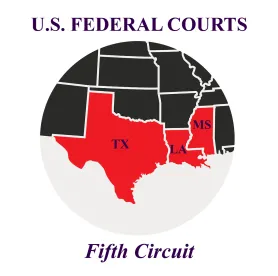On Wednesday, February 23, 2022, U.S. District Court Judge Jeremy Kernodle of the Eastern District of Texas granted the Texas Medical Association’s and Adam Corley’s (the Plaintiffs) motion for summary judgment on their challenge to portions of the Federal No Surprises Act (NSA) and simultaneously rejected the defendants’ cross motion for summary judgment. This is viewed as a win for health care providers who argue that portions of the NSA are disproportionately harmful to their industry and ability to provide care to patients. For a discussion of all the requirements applicable to the provider industry as of January 1, 2022, please see our prior posts (Part I | Part II).
The Plaintiffs filed a complaint against the United States Department of Health and Human Services, Department of Labor, Department of the Treasury, Office of Personnel Management (the Agencies), on October 28, 2021 (the Complaint). In the Complaint, Plaintiffs claimed that the portion of the NSA governing the arbitration process between out-of-network providers and health plans/health insurance issuers for resolving payment disputes (the Challenged Rule) violated the Administrative Procedure Act (APA). This section was laid out in “Requirements Related to Surprise Billing”; Part II, 86 Fed. Reg. 55,980 (Oct. 7, 2021) (Implementing Regulation Part II).
The court agreed and held that:
-
Plaintiffs have standing to challenging Implementing Regulation Part II;
-
The Challenged Rule conflicts with the original statute;
-
The Agencies “improperly bypassed” the notice and comment required by APA; and
-
Vacatur and remand of the Challenged Rule is the proper remedy.
Specifically, the Court determined that the NSA requires arbitrators to consider all the specified information, including the qualifying payment amounts (QPA) and five circumstances set forth at 42 U.S.C. 300gg-111(c)(5)(C)(ii) in determining which offer to select to resolve a payment dispute. Rather than instructing arbitrators to consider all factors pursuant to the Act, the Court held the Challenged Rule requires arbitrators to select the offer closest to the QPA unless “credible” information clearly demonstrates that the QPA is materially different from the appropriate out-of-network rate. Thus, in the Court’s words, the Challenged Rule “places its thumb on the scale for the QPA, requiring arbitrators to presume the correctness of the QPA and then imposing a heightened burden on the remaining statutory factors to overcome that presumption.”
The specific sections of Implementing Regulations Part II that were vacated are the parallel portions of the Independent Dispute Resolution Process outlined by the Agencies, respectively:
-
Definition of Material Difference in 45 C.F.R. § 149.510(a)(2)(viii); 26 C.F.R. § 54.9816-8T(a)(2)(viii); and 29 C.F.R. § 2590.716-8(a)(2)(viii)
-
Material difference means a substantial likelihood that a reasonable person with the training and qualifications of a certified IDR entity making a payment determination would consider the submitted information significant in determining the out of network rate and would view the information as showing that the qualifying payment amount is not the appropriate out-of-network rate.
-
-
Second sentence of 45 C.F.R. § 149.510(c)(4)(ii)(A); 26 C.F.R. § 54.9816-8T(c)(4)(ii)(A); and 29 C.F.R. § 2590.716-8(c)(4)(ii)(A):
-
Select as the out-of-network rate for the qualified IDR item or service one of the offers submitted under paragraph (c)(4)(i) of this section, taking into account the considerations specified in paragraph (c)(4)(iii) of this section (as applied to the information provided by the parties pursuant to paragraph (c)(4)(i) of this section).
The certified IDR entity must select the offer closest to the qualifying payment amount unless the certified IDR entity determines that credible information submitted by either party under paragraph (c)(4)(i) clearly demonstrates that the qualifying payment amount is materially different from the appropriate out-of-network rate, or if the offers are equally distant from the qualifying payment amount but in opposing directions.In these cases, the certified IDR entity must select the offer as the out-of-network rate that the certified IDR entity determines best represents the value of the qualified IDR item or services, which could be either offer.
-
-
Final sentence of 45 C.F.R. § 149.510(c)(4)(iii)(C); 26 C.F.R. § 54.9816-8T(c)(4)(iii)(C); and 29 C.F.R. § 2590.716- 8(c)(4)(iii)(C).
-
Additional information submitted by a party, provided the information is credible and relates to the circumstances described in paragraphs (c)(4)(iii)(C)(1) through (5) of this section, with respect to a qualified IDR item or service of a nonparticipating provider, facility, group health plan, or health insurance issuer of group or individual health insurance coverage that is the subject of a payment determination.
This information must also clearly demonstrate that the qualifying payment amount is materially different from the appropriate out-of-network rate.
-
-
Examples as laid out in 45 C.F.R. § 149.510(c)(4)(iv); 26 C.F.R. § 54.9816-8T(c)(4)(iv); and 29 C.F.R. § 2590.716-8(c)(4)(iv)
-
45 C.F.R. § 149.510(c)(4)(vi)(B); 26 C.F.R. § 54.9816-8T(c)(4)(vi)(B); and 29 C.F.R. § 2590.716-8(c)(4)(vi)(B)
-
If the certified IDR entity does not choose the offer closest to the qualifying payment amount, the certified IDR entity's written decision must include an explanation of the credible information that the certified IDR entity determined demonstrated that the qualifying payment amount was materially different from the appropriate out-of-network rate, based on the considerations allowed under paragraph (c)(4)(iii)(B) through (D) of this section, with respect to the qualified IDR item or service.
-
Notably, the vacatur of the above provisions is not limited to the named Plaintiffs in the case. It is well established that when a court sets aside agency rules that are arbitrary, capricious, an abuse of discretion, or otherwise not in accordance with the law, the ordinary result is that the rules are vacated. As such, Judge Kernodle’s decision may be telling for similar challenges to the NSA brought by other health care providers (for example the lawsuit brought by the American Medical Association and the American Hospital Association on December 9, 2021).





 />i
/>i

